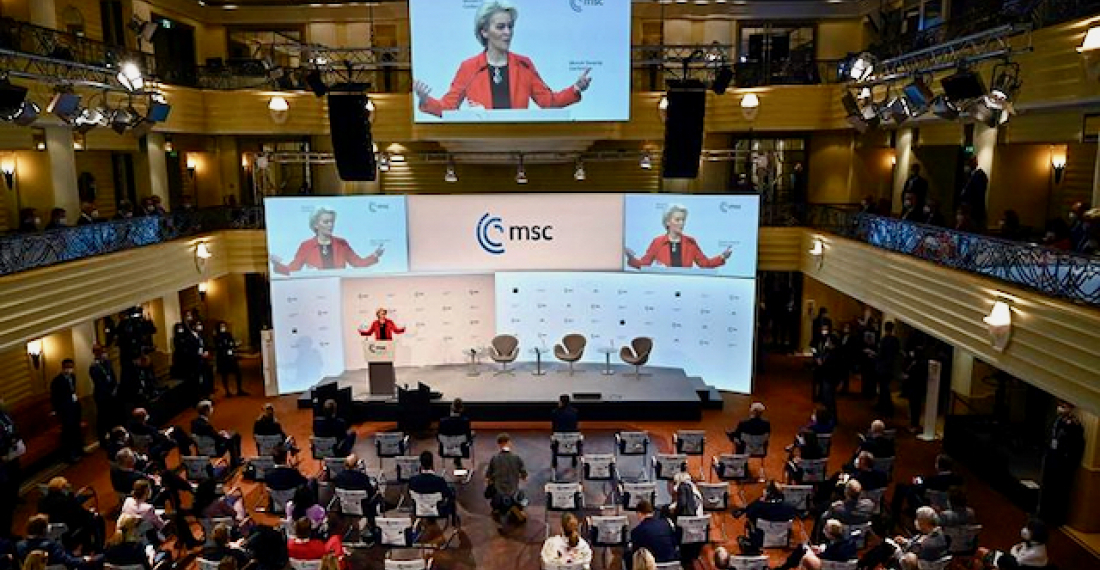The European Union is prepared for a complete disruption and halt to gas supply from Russia. President of the European Commission, Ursula von der Leyen, said this on Saturday (19 February) at the international Munich Security Conference in southern Germany. During the conference, Von der Leyen also strongly criticised the Russian gas company Gazprom, saying that it was providing a low volume of gas as possible in order to drive up gas prices in European markets.
The EU has been concerned for weeks that rising tensions with Russia over the situation in Ukraine. A potential Russian invasion of Ukraine might result in an interruption of gas supplies to Europe. Nevertheless, Von der Leyen said citizens could rest assured about the gas supply, and Europe could survive this winter even if there was a "deliberate" reduction in the supply of Russian gas.
"Even in case of full disruption of gas supply from Russia, we are on the safe side for this winter", von der Leyen said during the Munich Security Conference, noting that Brussels has already diversified its gas suppliers to be ready in case Gazprom turns off its taps.
"For the time being we would be able to replace the Russian gas with LNG deliveries that we get from our friends all over the world", she added.
Most of the gas consumed in Europe is imported. Until recently, Gazprom accounted for 40 per cent of those imports. However, in the past six months, the Russian company's deliveries have always been at the lowest level contractually possible, Von der Leyen said.
Von der Leyen also warned that Europe should accelerate its transition to sustainable energy sources, also as a way to be independent from Russian gas.






